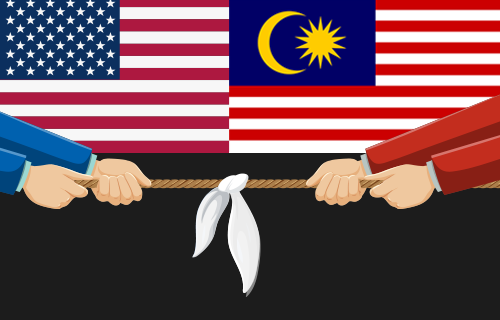IDEAS calls for transparency in government’s decision to withdraw from National Trust Fund for vaccine expenses

Kuala Lumpur, 23 April 2021 – The Institute for Democracy and Economic Affairs (IDEAS) has called for more transparency with regards to the government’s recent decision to pass an emergency ordinance allowing it to tap into the RM 17.4 billion National Trust Fund (KWAN) for vaccine expenses.
It should be noted that a total of RM 5 billion had already been allocated for vaccine-related expenditure, both through the RM3 billion earmarked under the 2021 budget and an additional RM2 billion announced in March.
IDEAS Chief Executive Officer Tricia Yeoh says, “When KWAN was set up in 1988, it was envisioned as a tool for the government to save a portion of its petroleum-based revenue for future generations of Malaysians. According to the Kumpulan Wang Amanah Negara (KWAN) Act of 1988 as well as our own research, withdrawals from the fund were to be only used for developmental purposes or as loans to the federal and state governments. This ordinance is a departure from the norm and sets a precedence for future dipping into the Fund.”
“Ultimately, KWAN is the only oil-related fund in Malaysia. Considering this country is heavily dependent on oil and gas revenue, the governance of this fund is crucial. A total of RM17.4 billion has been accumulated after 33 years of the Trust Fund’s existence, and these savings should be considered a precious resource for the future generations of Malaysia only to be used in extraordinary emergency circumstances. There has only been one withdrawal from KWAN since 1988, indicating that there has never been a need to rely on these savings until now. The government can in fact afford to finance any additional expenditure through further borrowings.”
Yeoh says in order to ensure transparency and accountability, the government needs to disclose the amount they intend to withdraw from KWAN.
“The government must provide more details about how money from the fund is going to be utilized, since the stimulus package had already allocated RM 2 billion for the procurement of the vaccines, which leaves a further RM 3 billion buffer for presumably other vaccination-related expenses including distribution, communication and marketing to boost vaccination sign-ups. Clarification is needed on why more than RM5 billion is required for the vaccination exercise,” she says.
“In the long term, the government must look into implementing more specific withdrawal rules for KWAN, such as setting an agreed-upon percentage of the fund that can be withdrawn in the future to ensure budget stability. I also look forward to seeing how the Fiscal Responsibility Act that we understand is being drafted will set up rules to ensure fiscal responsibility, including oversight of any national expenditures such as from KWAN or the consolidated budget. Ultimately parliamentary oversight is the most crucial and we stress again the importance of reconvening Parliament in the immediate future.
Yeoh adds, “In the context of the future sustainability of Malaysia’s oil and gas revenues, given the country’s depleting reserves and the changing global energy environment, KWAN should not be seen as an indefinite source of funds for future government expenditure. This makes ensuring openness in relation to the governance of the RM 17.4 billion currently held within the fund key for the future fiscal health of the country.”
— END —
Download Media Statement PDF File Here
Download Policy IDEAS No. 19, “The New Face of KWAN: Proposals to Improve Malaysia’s Natural Resource Fund” here.
For enquiries, please contact:
Amir Ridzuan Jamaludin, Assistant Manager, External Relations
T: +603 2070 8881/8882 | E: amir@ideas.org.my

